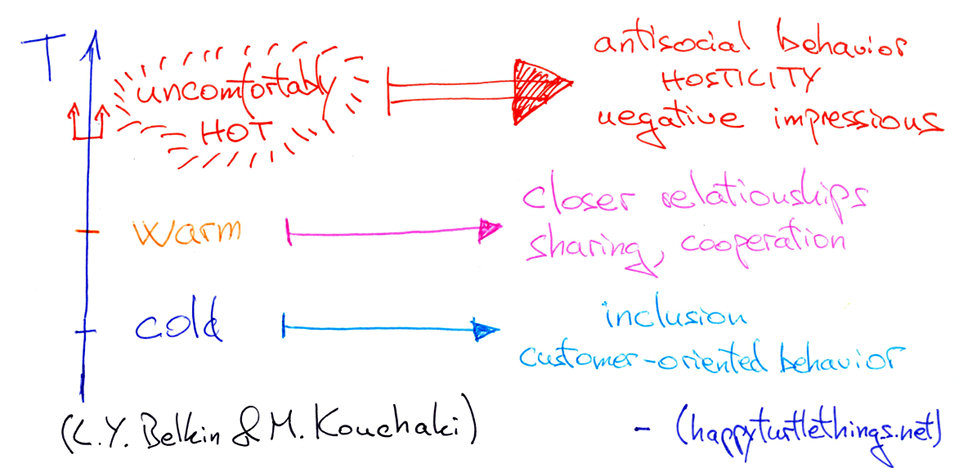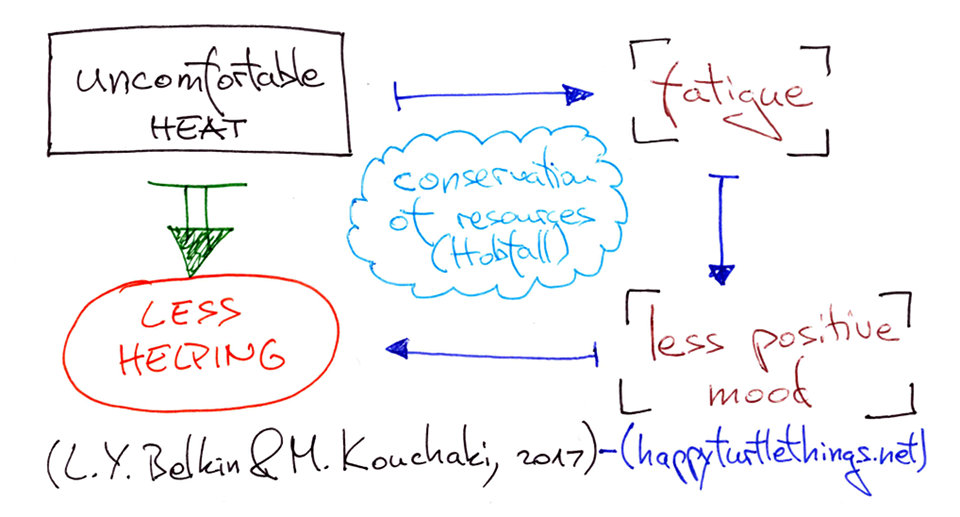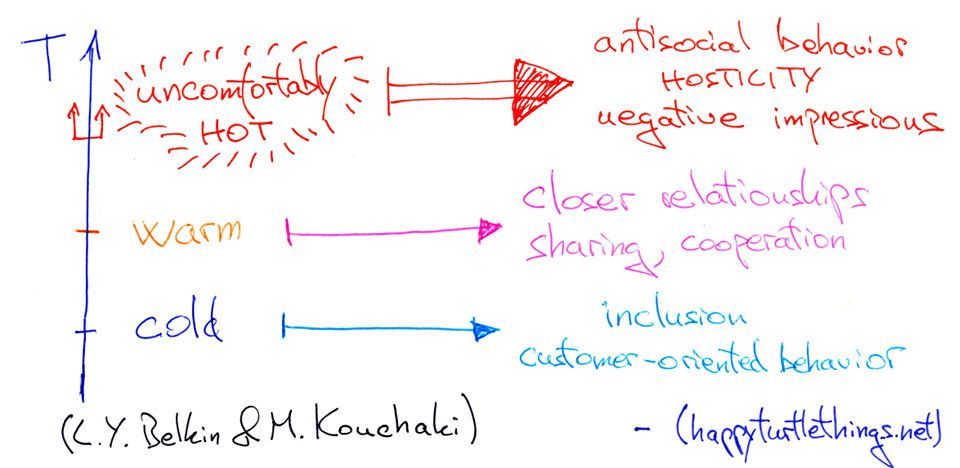Here we go again, it's that time of the year for the northern hemisphere — summer. Eternal sunshine. Blistering heat and daily temperatures reaching the heights needed to melt thoughts. Good news? It's done in a few months, and then we can all complain about the cold and rain again. Bad news? It's not just the weather that's being horrible — it's everyone around you, too.
A recent paper, Exploring the impact of ambient temperature on helping (Belkin & Kouchaki, 2017), takes a look at the mechanism by which uncomfortably warm environments change your behavior.
Let's be clear, individual helpful behavior is a crucial component of human nature — it's been proven to increase morale, creativity, productivity, and social commitment, among other things. The human system is one that works on the concepts of mutual trust and dependability - doing something for your fellow man without being explicitly rewarded for it. Fascinatingly, this tendency depends on ambient temperature.
Previous studies had shown that comfortable, warm enviroments make you think of your personal relationships as warmer, and they increase sharing and cooperative behavior. Comfortable cold environments encourage social inclusion and customer-oriented behavior in various organizations, whereas uncomfortably hot environments bring forth antisocial behavior. When you feel too hot, you become hostile and take away highly negative impressions from the situations you experience. The authors of the aforementioned study attempted to find out why.

They use the conservation of resources model (see Conservation of Resources: A New Attempt at Conceptualizing Stress by Stevan Hobfoll, 1989), which boils down to explaining human behavior by the inherent desires to obtain and protect valuable resources and avoid the stress of losing them. The authors hypothesize that because hot environments increase fatigue, the resources of alertness and energy will be in high demand, and ideas of prosocial behavior that doesn't benefit the subject will be discarded in favor of conservation of resources. They look into this through three studies — skip ahead if you want to get to the moral of the story without looking at the fluff.
Field data
The start of the work on this paper began by the authors being contacted by a Russian retail company, asking them to analyze the data on the helpful behavior of their employees during the extreme heat wave of the summer of 2010 (without air conditioning, naturally), and the comparatively mild summer of 2011. (Agreeing to this was very helpful!) The company had sent out independent observers to assess the behavior of its employees through a questionnaire. It could be shown that the heat wave had strong negative effect on the helpfulness of the retail employees. Interestingly, the heat wave didn't cause more employees to miss work, and the cleanliness levels of the stores looked alike. The only difference? Shitty customer
Controlled experiment
In a controlled experiment designed to attempt to replicate this data, paid subjects in the trial group were asked to imagine how they felt on an extremely hot day, helped by visual aids (which presumably means they were shown photos of people sweating profusely and cursing at the sky), and the control group was tasked with vividly remembering just the previous day. Both groups were put through the same tests, and afterwards asked to voluntarily fill out another survey, this time without financial compensation. Only about half of the trial group decided to fill it out, when compared to the control group, and even though their test results were similar, the trial group reported feeling much more fatigued and being in a much less positive mood.
Field experiment
Now, this is my favorite one. They found two equivalent university groups that had the same course held either in a hot room, or in a room of comfortable temperature. They made them fill out a decoy survey, and afterwards asked them to voluntarily fill out another survey for a local charity. The students from the hot room answered on average 4% of the questions, and those from the comfortable room over 20%! Almost all of the students from the comfortable room answered at least one question, whereas less than two thirds of the hot students did the same.

In conclusion, the depletion of energy caused by fatigue in uncomfortably hot environments decreases the postivity of the mood experienced by those in it, which makes them seriously unlikely to use that energy to help someone other their own selves. The sample sizes and methods aren't perfect, but this is one of those papers that just may change the way you think of human behavior and antisocial impulses — I recommend a read!
And the next time you act like a dick to someone — tell them you have an excuse.

